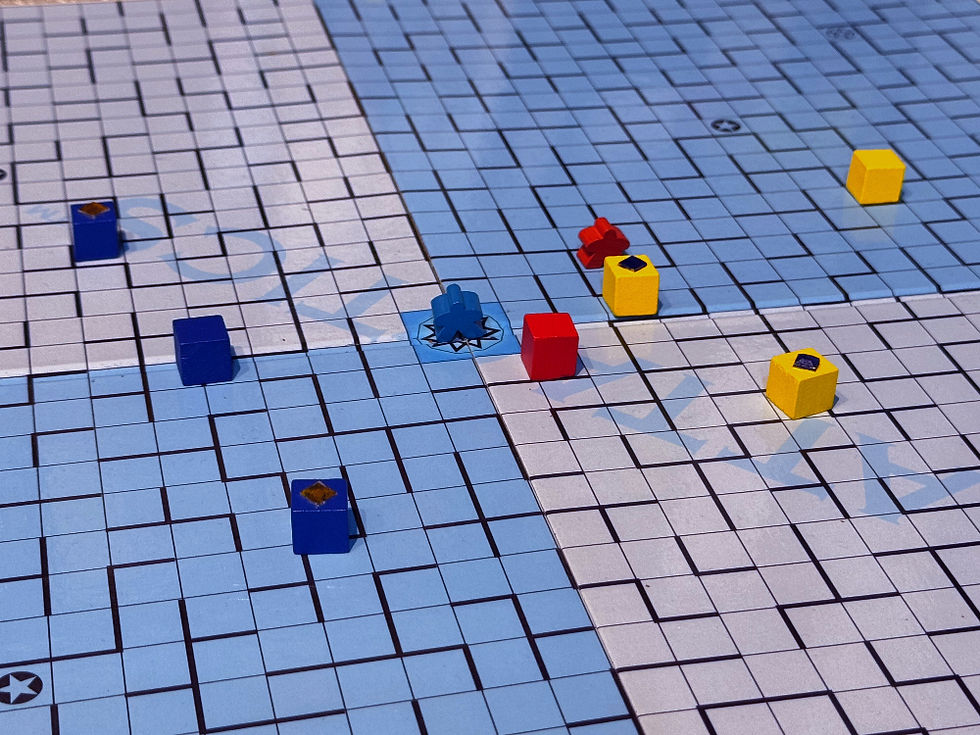The Subtle Power Shifts in Tabletop Gaming
- Amurá

- Aug 12, 2025
- 2 min read
Tabletop gaming is more than dice rolls, cards, and miniatures—it’s a living ecosystem of personalities, strategies, and shifting energies. Every session has its own rhythm, and sometimes, the flow of the game requires more than just tactical thinking. It requires knowing when to step back, when to rejoin forces, and when to relinquish personal dominance for the greater good. Especially in team play, when one has to allow their partner to shine, either in expressing their luck or their strategy skills.
The first of these energies, retreat from strong influence, can be surprisingly empowering. In many games, especially ones that lean on roleplay or team strategy, there’s a temptation to take control and steer the group toward your vision. But pulling back—allowing other voices to rise—can open space for unexpected creativity. A retreat doesn’t signal defeat; instead, it can foster deeper engagement from others. The game’s world becomes richer when everyone has room to leave their mark. When playing teams in our game ATTACTICS, there’s no sense in shouting out strategies, when the roll of the die will only give them so much working room. You might want to guide one’s approach, but the rules and dice give them another. Learn to laugh.

This naturally leads into the second energy: returning to cooperation. Tabletop play thrives when players are invested in each other’s progress, not just their own. Sometimes, a heated negotiation, a near loss, or an in-game betrayal can fracture the party’s unity. The art lies in recognizing the moment to come back together, realigning goals, and rebuilding trust. In cooperative games, this can mean strategically sharing resources; in competitive ones, it may mean forming temporary alliances to maintain game balance. Either way, this return to shared purpose often makes the story more memorable. Hoping your partner can read your mind or see what you see taking place.
Finally, we come to sacrificing strong influence—perhaps the most challenging energy of all. This isn’t just stepping back temporarily; it’s intentionally giving up a position of control or advantage so the game (and the group dynamic) can flourish. It might be yielding the winning move to a newcomer to keep them engaged, letting another player’s narrative arc take center stage, or choosing a suboptimal play for the sake of the group’s story. Such sacrifices often become the moments players remember fondly—the generous act that made the ending more satisfying or the journey more fun.
Tabletop gaming, at its best, is a shared creative experience. These energies—stepping back from dominance, finding your way back into unity, and releasing control for the collective benefit—are not just gaming strategies. They’re lessons in empathy, adaptability, and community. And when embraced, they transform not just the game, but the players themselves.





Comments